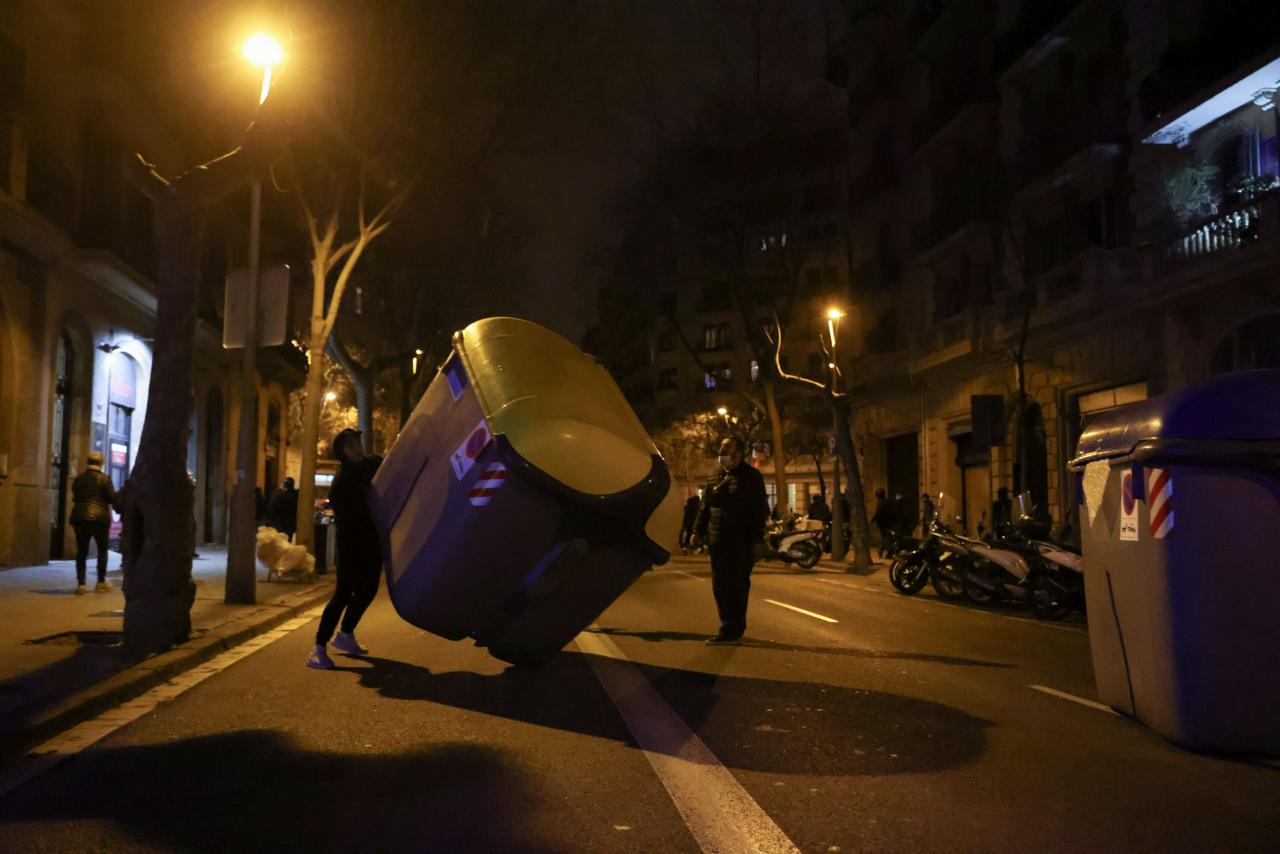"I'm not here only for him, but for the right to express ourselves and because there's a lot of discontent about things that must change," said Reis, 25, referring to the nine-month sentence that Pablo Hasel began to serve last week.
Hasel's case has galvanized a debate over freedom of expression in Spain, prompting the government to announce it would relax free speech laws that ban ridiculing of religious beliefs and insults against the monarchy as well as the glorification of armed separatist movements.
For Reis - a jobless rapper who sings on trains to make ends meet - and others involved in demonstrations that have at times turned violent, Hasel's imprisonment has also served to channel growing frustrations over a range of other issues.
They include job insecurity, anger at the political establishment or feeling victimised during the pandemic.
"The Hasel case has been the spark that has set the fire ablaze," said protester Sergi Prat, 19, of the rallies that have helped ease the mood of "depression, anger and apathy" that recession and the COVID-19 crisis have generated.
Prat, who has a temporary job as warehouseman, said thousands of young people like him were fed up with poor employment prospects and not being able to afford to leave home.
Something's not working
Hit hard by the pandemic with over three million cases and close to 70,000 deaths, Spain enforced a strict lockdown last year, when the economy shrank by a record 11%.
That in turn hit employment, notably among the under-25s, of whom 40% were out of work last year, more than any other European Union country.
Hasel is Catalan, and the northeastern region has been the focal point of the protests against his jailing.
That comes as no surprise to Carles Feixa, social anthropology professor at Barcelona's Pompeu Fabra University. The region has experienced a decade of separatist-driven political instability as well as particularly harsh COVID-19 restrictions.
Beyond that, he says, Spain could be turning its young generation into a lost one, if widespread concerns about the residual effects of the 2008/9 financial crisis and a future where uncertainties about the pandemic and climate change loom large are not addressed.
"It would be a mistake to believe these (protests) are occasional outbreaks that get repressed and end," he said, arguing that young people feel increasingly ignored and that, for some, burning trash containers and clashing with police during the Hasel protests was simply a cry for attention.
"It's clear that something is not working ... Young people have not suddenly gone crazy. There are reasons behind all of this," said 21-year-old protester Pablo Castilla, a student who believes he will struggle to find a job.


No comments
To be able to write a comment, you have to be registered and logged in
Currently there are no comments.